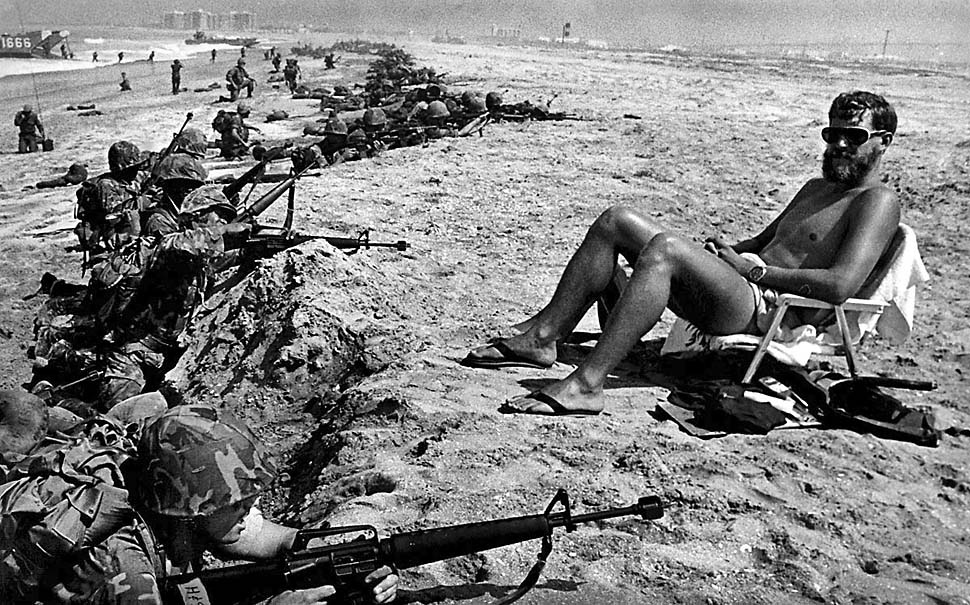The always-excellent Joe Posnanski submitted his vote for Sportsman of the Year this Monday, and his selection couldn’t be more different than the man the voters chose last year. Derek Jeter was the sportsman of 2009, and he was a veteran that had reversed some statistical signs of aging and poor defense to turn in the second-best season of his career (by WAR) at 35. His team won the championship. He was the starting shortstop. He was a matinee idol in the cultural capital of America, he was getting married, and babies were being named after him.
So it’s kind of a long way from there to Armando Galarraga, Posnanski’s vote for 2010. Galarraga didn’t make his substantial major league debut until he was 25, and in his best season hasn’t approached Jeter’s worst season (by WAR). He’s not a great pitcher – a 4.87 FIP is about right for a flyball pitcher with a below-average strikeout rate – and this season he wasn’t even an average pitcher. Obviously, this isn’t about excellence at his sport. Take it away, Joe:
Joyce would handle his mistake with great dignity. But the real hero was Galarraga. He did not argue with Joyce on the field. He just sort of smiled. He retired the next batter, Trevor Crowe, and finished off the game as a one-hitter (making this, in the minds of many, the first 28-out perfect game in baseball history). And then he went into the clubhouse and told reporters that he was very proud of the way he pitched. When asked about Joyce immediately afterward, he said that Joyce should not worry about it, that everybody makes mistakes. He actually planned to go to Joyce to make HIM feel better. Later, when Joyce came to see Galarraga to apologize for missing the call, the pitcher reiterated his stance. It meant a lot to him that Joyce came over to apologize.
“Nobody’s perfect,” Galarraga said.
Of course, Posnanski covers the different definitions of “Sportsman” in the preamble for his vote. And it’s no brain-buster to point out that we admire athletes for their excellence as well as their grace or good conduct – when we can. Former winners of the award seem to have won because of excellence and timing – such as Dwyane Wade the year he won the championship and the Boston Red Sox in 2004. But there are those that have won for other reasons, such as Arthur Ashe in 1992. Look at the whole list of winners and you realize that the definition is malleable and usually depends on the crossover appeal of the story. The “size of the story” was probably behind Posnanski’s 2008 vote for Stephen Curry and the fun he brought back to college basketball, and was probably also be behind his vote for Gallaraga.
But is there some sort of link – intentional or not – between last year’s winner and this year’s vote? Jeter’s big moment this year was very un-“sportsman”-like, in terms of fair conduct, and then there’s the relative excellence and careers of these two baseball men. Perhaps I’m being guilty of cynicism, or maybe I’m just making a connection where there is none. I’m certainly not accusing Posnanski of any untoward behavior. It’s just funny thing that occurred to me while considering a below-average ‘sportsman’ for the Sportsman of the Year. The most likely explanation is the fact that Galarraga and his near-perfect game were the baseball story of the year in the way that it warmed our collective heart.
But it’s also at least worth considering what candidate baseball might have been put forward if the focus were instead on excellence as it has been in years past. Would we be considering Buster Posey more heavily? He made his major league debut at a difficult position and then was instrumental to taking the Giants to their first San Franciscan title. If only he had put forth a more spectacular postseason line, this might be our story. .288/.354/.390 is pretty good, especially for a rookie, but it doesn’t win you postseason hardware or the imagination of the Sportsman of the Year voters – especially on a team full of so many characters and heros. At least this is the right track, judging from Tom Verducci’s vote – the Giants as a whole.
In the end, though, the Sportsman of the Year seems to be the main character in the story that most captured the sporting worlds’ imagination. Is that Armando Galarraga’s “im”perfect game for baseball and for you?



 Though he’s generally remembered as a social reformer, Spiritual Giant Ralph Waldo Emerson wasn’t one of these foppish, pasty-faced liberals you’re always seeing everywhere. In fact, he was kinda the opposite of that.
Though he’s generally remembered as a social reformer, Spiritual Giant Ralph Waldo Emerson wasn’t one of these foppish, pasty-faced liberals you’re always seeing everywhere. In fact, he was kinda the opposite of that.
